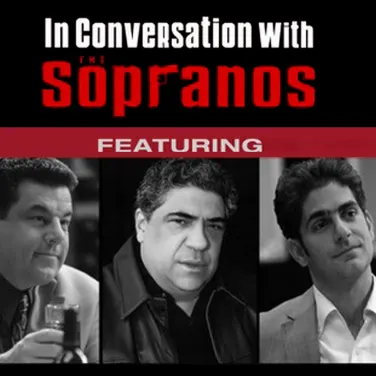
About
No info to show.
Frequently Asked Questions
- Why does Martin Scorsese not like The Sopranos?
- The notion that Martin Scorsese does not like The Sopranos is largely a misconception. In reality, Scorsese has expressed admiration for the groundbreaking HBO series, recognizing its significant impact on television storytelling and the gangster genre. However, some speculation arises from the fact that Scorsese, known for iconic Mafia films like "Goodfellas" and "Casino," was never directly involved with The Sopranos. The show's creator, David Chase, often cited Scorsese's works as inspirations, leading to playful references within the series itself
- What is the whole point of The Sopranos?
- The whole point of The Sopranos revolves around the duality of human nature, the complexities of family, and the moral ambiguity in modern life. At its core, the series explores the inner life of Tony Soprano, a New Jersey mob boss who struggles to balance the demands of his criminal organization with those of his family. Through Tony's therapy sessions with Dr. Melfi, The Sopranos delves into themes like identity, power, mental health, and the search for meaning in a changing world. The show is celebrated for its realistic depiction of the Mafia, moving beyond stereotypes to present mobsters as multifaceted individuals. It also examines the decay of the American Dream, highlighting how traditional values clash with contemporary desires. Ultimately, The Sopranos uses dark humor, psychological depth, and unflinching storytelling to show that everyone, even those we consider "bad,"
- Who does Lady Gaga play in The Sopranos?
- Lady Gaga made a brief cameo appearance in The Sopranos during Season 3, Episode 9, titled "The Telltale Moozadell."
- What was the restaurant in The Sopranos?
- The restaurant in The Sopranos holds significant symbolic and narrative importance throughout the series. The most iconic is Holsten's Brookdale Confectionery, featured in the unforgettable final scene of the show. Located in Bloomfield, New Jersey, Holsten's is where Tony Soprano and his family gather for a meal in the series' ambiguous ending. Another key establishment is Vesuvio, an upscale Italian restaurant owned and operated by Artie Bucco, a close friend of Tony. Vesuvio serves as a central meeting place for the Soprano crew and their families, hosting celebrations, business discussions, and dramatic confrontations. The restaurant settings in The Sopranos reflect the characters' cultural roots, their social dynamics, and the intersection of legitimate business with organized crime. They also provide a sense of authenticity, grounding the series in the everyday rituals of food, family, and community. For fans attending "In Conversation with The Sopranos," these iconic eateries are often a topic of nostalgia and intrigue.
- Who were the informants on The Sopranos?
- The Sopranos featured several characters who acted as informants, adding layers of tension and betrayal to the series' plotlines. The most notable informant was Salvatore "Big Pussy" Bonpensiero, one of Tony Soprano's closest friends and a trusted member of his crew. Big Pussy became an FBI informant due to pressure after being caught dealing heroin. Another significant informant was Adriana La Cerva, fiancée to Christopher Moltisanti. She was coerced by the FBI to provide information, ultimately leading to her tragic fate. Raymond "Buffalo Ray" Curto, a lesser-known member of the Soprano crime family, also worked with the FBI throughout the series, discreetly feeding them intel. Eugene Pontecorvo briefly became an informant before his own demise. These betrayals highlight the constant threat of law enforcement infiltration in mob life, a recurring theme discussed in-depth at events like "In Conversation with The Sopranos," offering fans insight into the show's complex exploration of loyalty and trust.